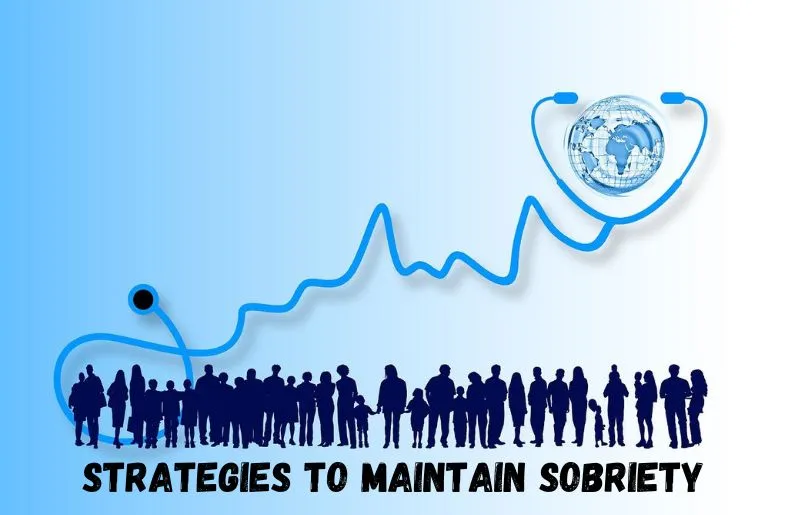Finding a Support Network
Having a solid support system is essential to staying sober. Support from friends and family aware of your objectives can be invaluable. There are also support groups, such as AA Classes Near Me, that can offer communal strength. Joining such groups helps many individuals feel less isolated in their journey.
Social support systems, including individuals, organizations, and communities, have been proven to reduce relapse rates and increase the chances of long-term sobriety. These networks provide emotional comfort, practical advice, and coping strategies, making the journey to sobriety less daunting and more achievable. They also foster a sense of belonging and accountability.
Establishing a Routine
Keeping up a regular schedule is essential to a sober existence. It provides structure, reduces stress and anxiety, and helps individuals focus on tasks. A well-planned day can distract from cravings and reinforce a sober lifestyle. When people are most prone to relapse in the early phases of recovery, this organized method is quite helpful. Combining activities like work, exercise, hobbies, and social engagements can keep the mind and body active, offering a sense of purpose and fulfillment. This holistic approach makes maintaining sobriety more manageable and rewarding.
Staying Physically Active
Physical activity is crucial for maintaining sobriety, releasing endorphins, and improving mood and overall well-being. Activities like running, swimming, and yoga can serve as healthy outlets for pent-up energy and stress, reducing anxiety and depression symptoms. Regular exercise improves sleep, appetite control, and self-esteem, contributing to a healthier lifestyle. Group sports or fitness classes can expand social networks, providing additional recovery support. Overall, regular physical activity is a natural antidepressant and mood stabilizer.
Mindfulness and Meditation
Mindfulness and meditation are practical tools for maintaining sobriety, managing stress, and fostering a present-moment focus. Regular practice can reduce cravings and increase emotional resilience. Mindfulness helps break negative thoughts that often lead to substance abuse by focusing on the present moment. Deep breathing exercises and guided imagery are two meditation approaches that improve emotional control and self-awareness. These practices can be easily adapted to suit individual needs and lifestyles, making them valuable to daily routines. Both practices can help break the cycle of negative thoughts and substance abuse.
Healthy Eating Habits
A balanced diet maintains emotional stability and general health. Avoiding caffeine and sugar, which can affect mood, is advisable. Nutritious food choices give the body the necessary fuel to stay sober.
According to Harvard Health, a healthy diet can even improve brain function and mood, which are critical for recovery. Eating right can correct deficiencies and imbalances caused by previous substance abuse, providing a solid foundation for your mental and physical well-being.
Nutrient-dense foods, including fruits, vegetables, lean meats, and whole grains, can help balance blood glucose levels, which in turn help regulate mood and energy. Staying hydrated and avoiding highly processed foods can also support recovery, leading to sustained physical health and emotional balance.
Avoiding Triggers
To stay sober, it’s crucial to understand and avoid triggers such as stressful situations, certain places, or social groups. Identifying these triggers and maintaining a safe distance from them can prevent relapse. Developing strategies to manage these triggers, such as avoiding specific social settings or disengaging from relationships that encourage substance use, is essential. Creating a supportive environment, such as rearranging living spaces or finding new social circles, can help maintain long-term sobriety. Being vigilant and prepared is critical to achieving sobriety.
Attending Meetings Regularly
Support meetings are essential for maintaining sobriety and providing continuous reinforcement, accountability, and community support. Sharing experiences and hearing others’ stories can be beneficial. These meetings offer practical advice and emotional encouragement, bolstering resolve and connecting individuals to a community. They also serve as a reality check, reminding individuals of the consequences of relapse and the value of sobriety. They create an environment where recovery is continually worked on, making it an integral part of life rather than a temporary phase.
Setting Realistic Goals
Setting specific, measurable goals is crucial for sustained sobriety. These goals can be daily, weekly, or monthly and should be realistic and tailored to the individual’s journey. Short-term goals offer quick wins, while long-term goals sustain motivation. Regularly reviewing and adjusting goals ensures they remain relevant and challenging. Clear objectives motivate and celebrate progress, fueling further commitment to the sobriety journey.
Journaling Your Progress
Keeping a journal is an effective way to monitor your recovery and stay sober. It allows for exploring thoughts and emotions and identifying patterns, triggers, and achievements. Over time, it becomes a powerful record of one’s journey, providing insights and reinforcing progress. Writing can be therapeutic, clarifying thoughts and reducing emotional burden. It is also a practical tool for setting goals, tracking milestones, and reflecting on overcoming challenges. Overall, journaling supports mental health and overall well-being.
Seeking Professional Help When Needed
Professional help is essential for maintaining sobriety, especially for long-term recovery. Therapists and counselors offer strategies and support to address underlying issues contributing to addiction. Seeking continuous professional help is a proactive step toward maintaining sobriety. Experienced therapists and counselors can provide specialized techniques and individualized care plans, resolving deep-rooted issues. Neglecting the mental health aspect of recovery can make long-term sobriety more challenging. Professional help offers tools and understanding to address emotional and psychological barriers.
For more read > Symley Supplement: Improve Digestion and Immunity




